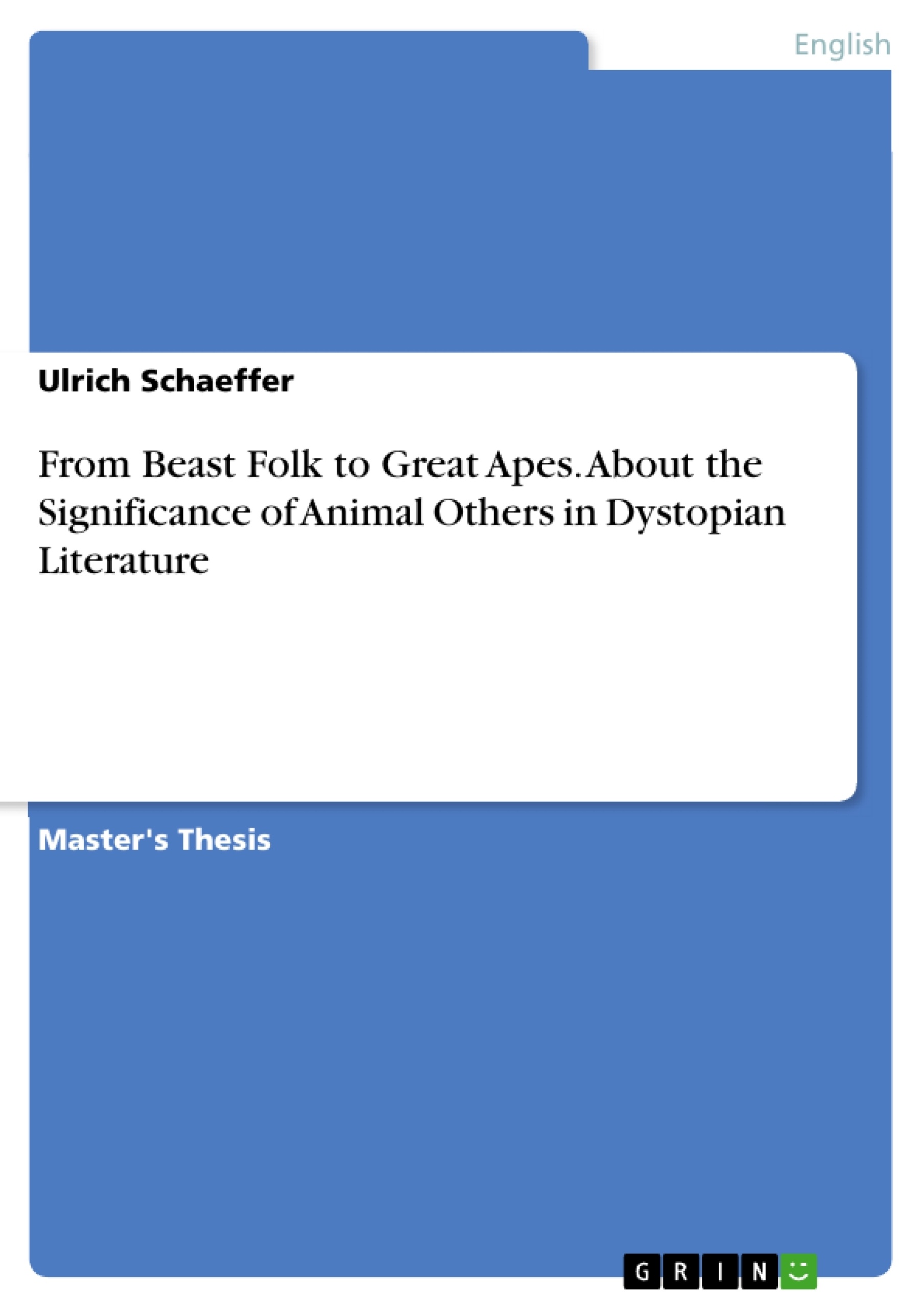Fictional animals constitute a unique literary device to let familiar things appear in a new light. Yet despite the fact that a number of dystopian texts utilise animals to convey manifold criticism, very little scholarly attention has been paid to this. The present research paper discusses the varied effects and overall significance of animal ‘Others’ in eight relevant dystopias from late Victorianism to Postmodernism in consideration of Edward Said’s ‘Otherness’. The results reveal that dystopian animal ‘Others’ represent a powerful tool to convey manifold social criticism. Moreover, most of the selected literature deconstructs animal ‘Otherness’ by jeopardising the otherwise generally unquestioned Western animal-human paradigm. This effect intensifies the dystopian impulse and, even more importantly, potentially sparks off a thought process that exposes the pejorative mechanisms underlying non-fictional ‘Others’. While real-life social out-groups may benefit from the emancipatory analogy, anthropological self-criticism by questioning one’s own judgmental authority appears to be even more significant.
Inhaltsverzeichnis (Table of Contents)
- Introduction: The Animal-Human Paradigm and Dystopian Literature
- The Theoretical Concept of the 'Other'
- The Depiction of Animals in Relevant Dystopias against the Backdrop of the 'Other'
- Animals within the Naturalistic Register
- Animals as Dramatis Personae
- Animal-Human Inversion
- Principal Effects of Utilising Animals in Dystopian Literature
- Questioning the Animal-Human Dichotomy
- Emphasising Inherent Human Vices
- Evil Human Nature
- Selfishness
- Questioning Human Culture and Society
- General Societal Criticism
- Animal Experiments and Abusive Animal Treatment
- Politics
- Exploitation and Racism
- Religion
- Anti-Utopian Criticism
- Conclusion: About the Overall Significance of Dystopian Animal ‘Others’
Zielsetzung und Themenschwerpunkte (Objectives and Key Themes)
This research paper examines the role of animal “Others” in dystopian literature, analyzing their significance as a literary device to critique social constructs and human behavior. It explores how animal characters contribute to the dystopian impulse and challenge the conventional Western paradigm of the animal-human relationship.
- The concept of the "Other" in dystopian literature, particularly in relation to animals.
- The varied depictions of animals in dystopian texts and their function in conveying social criticism.
- The ways in which animal representations challenge the animal-human dichotomy and expose inherent human vices.
- The critique of human culture and society as conveyed through animal “Others” in dystopian narratives.
- The emancipatory potential of animal "Otherness" for marginalized social groups and its implications for anthropological self-criticism.
Zusammenfassung der Kapitel (Chapter Summaries)
The first chapter introduces the concept of the animal-human paradigm and explores its connection to dystopian literature. The second chapter provides a theoretical framework for understanding the "Other" as a concept, drawing on Edward Said's work. The third chapter examines the depiction of animals in dystopian narratives, analyzing their roles as natural elements, characters, and subjects of inversion. The fourth chapter explores the primary effects of animal "Others" in dystopian literature, focusing on their ability to question the animal-human dichotomy, expose inherent human vices, and critique human culture and society.
Schlüsselwörter (Keywords)
Dystopian Literature, Animal "Others," Social Criticism, Animal-Human Paradigm, Edward Said, "Otherness," Anthropocentrism, Human Vices, Cultural Critique.
- Quote paper
- Ulrich Schaeffer (Author), 2013, From Beast Folk to Great Apes. About the Significance of Animal Others in Dystopian Literature, Munich, GRIN Verlag, https://www.grin.com/document/288707



